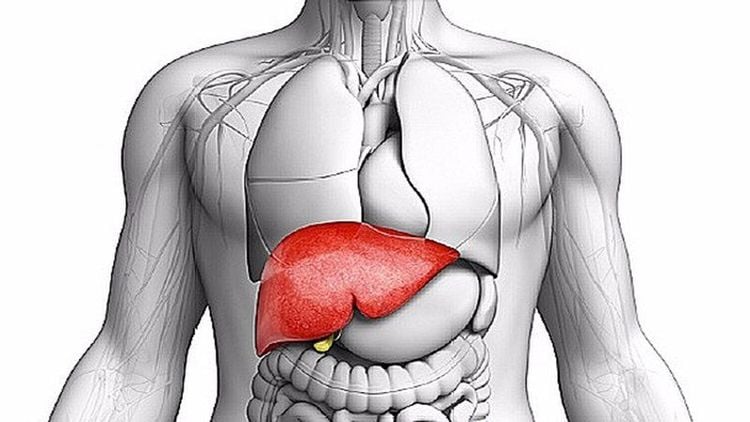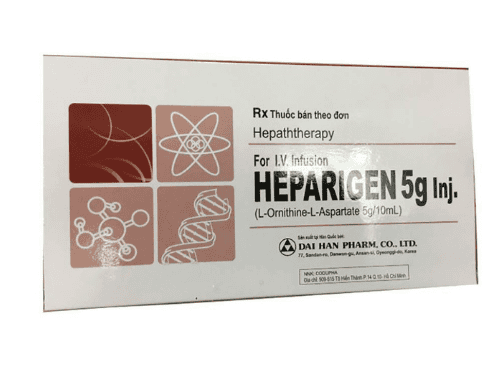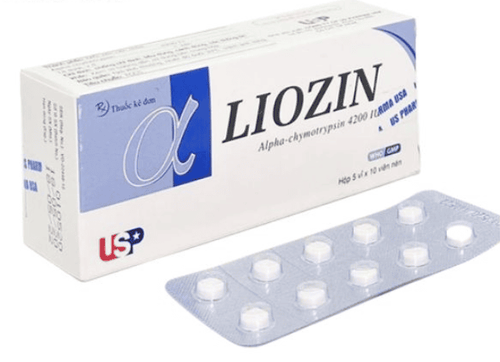This is an automatically translated article.
The Alpha-1 antitrypsin test (AAT) is a test that checks the body's levels of the AAT protein, which is produced by the liver to protect organs from the harmful effects of other proteins. Alpha 1 - antitrypsine deficiency can be inherited or acquired. However, genetic factors play a large role in causing this protein deficiency.
1. What is alpha-1 antitrypsin (AAT)?
Alpha-1 antitrypsin (AAT) is a protein located in the lungs and blood vessels. Has a role in protecting the lower respiratory tract from damage caused by the action of elastase, because it inhibits the activity of protein-digesting enzymes and prevents some lung diseases such as emphysema or chronic obstructive pulmonary disease. count . At that time, the body will have a deficiency of Alpha-1 antitrypsin and cause lung and liver problems if it does not make enough of this protein in the blood.
Genetic factors play a major role in causing AAT deficiency. If a child is born to both parents who have the gene for AAT deficiency, then it will definitely have AAT deficiency.
If a child has one of the parents with AAT deficiency, there is a 50/50 chance of having the disease or having mild to moderate disease. Low or no ATT levels can cause lung damage and make breathing more difficult. The age at onset and severity of the disease may depend on the degree of ATT deficiency.
2. What is the Alpha-1 antitrypsin test?
Alpha-1 antitrypsin test is a test done to look for a genetic abnormality, a liver disease of unknown cause in the newborn. In particular, this test also helps doctors in finding the cause of liver diseases of any age, or lung diseases such as emphysema.
The specimen used for this test is a venous blood sample. For patients without hyperlipidemia, it may not be necessary to fast before the blood sample is drawn, but for patients with hyperlipidemia, it is necessary to fast for at least 8 hours before taking the blood sample.
The normal reference value of the test is 0 - 60 μmol/l or 85 - 213 mg/dl. Some conditions can cause an increase in the Alpha-1 antitrypsin index, including: People with acute and chronic inflammatory disorders; patients with hepatitis; cancer patients or patients with infectious conditions, tissue necrosis; people under stress, people with thyroid infections, people with lupus erythematosus syndrome, congenital ATT deficiency and people with kidney syndromes, etc.

Xét nghiệm Alpha-1 antitrypsin giúp phát hiện các bệnh lý liên quan tới gan, phổi ở mọi lứa tuổi
3. Indication of Alpha-1 antitrypsin . test
Alpha-1 antitrypsin test will be ordered by the doctor in the following cases:
Children have jaundice for more than 1-2 weeks after birth and have other signs of liver damage. People who are over 40 years old and have symptoms that begin with wheezing, a persistent cough or bronchitis, shortness of breath after vigorous activity, or signs of emphysema. Patient has a family history of Alpha-1 deficiency The person has a family with the disease and wants to know the probability that the child will have AAT deficiency or not?.
4. Meaning of Alpha 1 antitrypsin test index
Alpha1 antitrypsin is a test that allows us to stratify the risk for patients with Alpha 1 antitrypsin deficiency.
A result of AAT concentration < 60 mg/dl indicates a sharp decrease in AAT concentration and reflects an enzyme deficiency that occurs in individuals homozygous for the disease gene and may increase the risk of disability and disease. mortality before the age of 45 is 3-4 times higher than that of the general population.
A moderate decrease in Alpha1 antitrypsin levels, i.e. a result in the range of 100-150 ng/dL, usually reflects an enzyme deficiency that occurs in an individual with heterozygosity for the causative gene and should not be considered is a risk factor for morbidity and mortality in patients.
This test will especially be ordered for patients with suspected congenital Alpha 1 antitrypsin deficiency.
5. Notes when performing the AAT . test
Factors that can falsify test results include: Pregnancy factors; acute or chronic inflammatory conditions; have certain cancers; stress status; side effects of oral contraceptives. Or the amount of AAT may be reduced in newborn babies with respiratory failure.
Before the test, the doctor who ordered the test will have a special note for your health condition and let the doctor know if you are using contraceptives.
Please dial HOTLINE for more information or register for an appointment HERE. Download MyVinmec app to make appointments faster and to manage your bookings easily.













